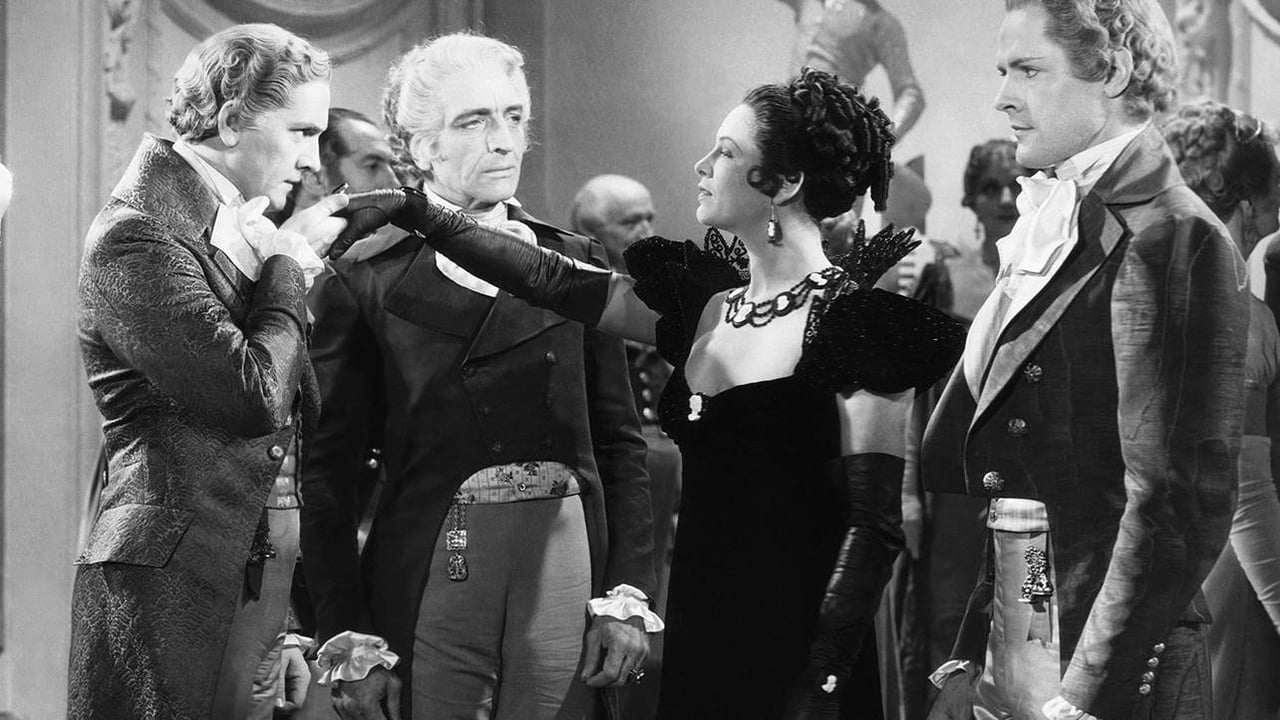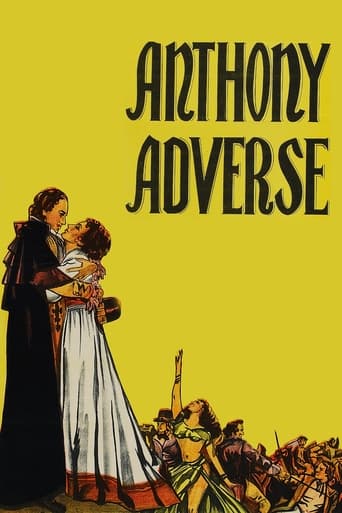

I really wanted to like this movie. I feel terribly cynical trashing it, and that's why I'm giving it a middling 5. Actually, I'm giving it a 5 because there were some superb performances.
... View MoreAll of these films share one commonality, that being a kind of emotional center that humanizes a cast of monsters.
... View MoreClose shines in drama with strong language, adult themes.
... View MoreStrong acting helps the film overcome an uncertain premise and create characters that hold our attention absolutely.
... View MoreCan't remember ever seeing a picture with as many twists and turns as "Anthony Adverse". In the 60's they would call such a story 'psychedelic', as though the author was influenced by drugs of some sort. So many detours, coincidences, haphazard occurrences, abrupt plot diversions and dead ends. Nevertheless the film is oddly arresting, like a book you can't put down, and here you keep watching and hoping for unification. In a word, it is fascinating without being engrossing.The cast is formidable and uniformly competent - no bad performances in sight. Especially good are March, DeHavilland, Claude Rains (as always), Donald Woods, Edmund Gwenn and the underrated Akim Tamiroff. I was not going to rate it as highly as I did until the graceful and bittersweet ending which redeemed a bizarre novel, the only one Hervey Allen ever wrote.
... View MoreFredric March was quite a versatile actor, comedy, screwball comedy, epic drama, courtroom drama, period drama, great literature. The story is reminiscent of Les Miserables, the movie version in which he also played the lead role. I find it surprising that this film has not been remade, considering the countless renditions of Les Miserables there have been over the years. It is a sordid tale for the young, so would not recommend for children. The characters could use a bit more depth, but at 2 hours and 20 minutes, there is still a lot of ground to cover, in a 1300 page novel. It would be nice to see what was cut that did not make the final version.
... View MoreThe main pleasure this film gives me is the music in it by Erich Korngold, and especially the African scene around the dying of the Priest. He used the same theme in his only Symphony and in other works to. The film's main story was a wonderful vehicle for Korngold's creating genius to have full reign in the emotion department. Long may romantic music be heard if the nasty music critics will allow it. They are very guilty of suppressing some of the most beautiful music to be written or heard in this life. Example, Eugene D'Albert's magnificent Opera "Tiefland" do we ever hear it on any classical music programme? No ! I rest my case. The film is very enjoyable and all the cast were superb, but Oh how they compressed the story, the book I believe is very long and attempting to Hollywood it didn't really do the book justice. However it remains one of my favourites. Is there anyone else out there who loves Korngold's music, if so, please get in touch with me. here is my E mail address rupertloach@aol.com Thank you. R. Loach
... View MoreThe movie is 2 and a half hours long and it went by pretty quick. I was surprised at all the negative reviews because i thought it was pretty good. The only part that is pretty bad was the first scene with the two lovers, because they were pretty bad actors and it was pretty funny to see Claude Rains saying he's one of the world's greatest swords man and then watch him actually in a sword fight. In the first scene Rains kills his wife's lover and takes his baby and drops it off at an convent. It shows him growing up and falling in love with Olivia De Havilland. The was one part that didn't quite make sense, in which March goes to Africa to become a slave trader and i couldn't understand the reasoning behind the character.
... View More